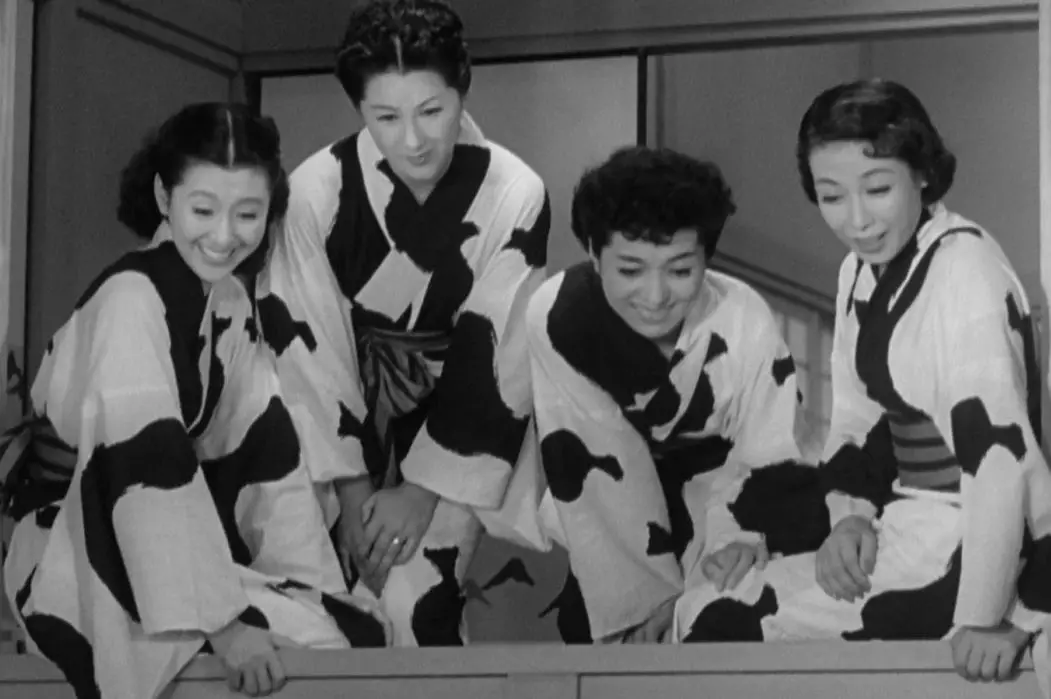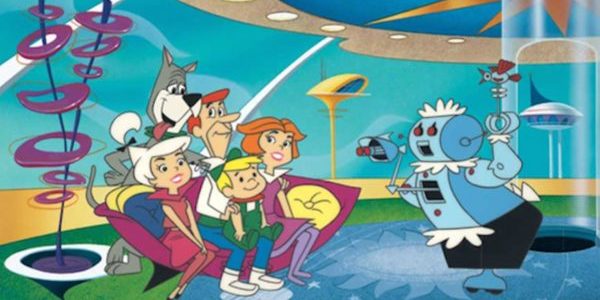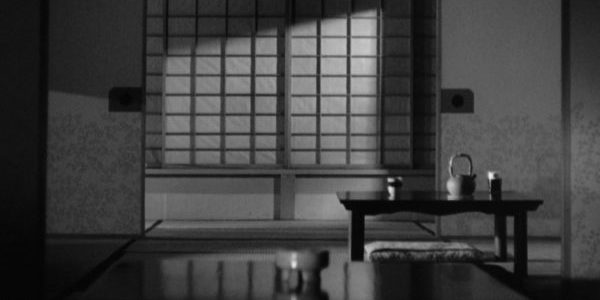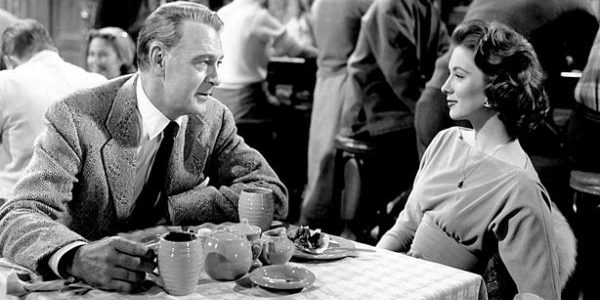Video Dispatches: THE JETSONS, FLAVOR OF GREEN TEA & TEN NORTH FREDERICK

Midwesterner, movie lover, cinnamon enthusiast.
Video Dispatches is a regular column covering recent home video releases.
The Jetsons: The Complete Original Series (1962-63) – Warner Archive

This month, Warner Archive has released a three-disc set of all 24 episodes of the original run of the Hanna-Barbera animated family sitcom, The Jetsons, the program they made as a space-age ying to the stone-age yang that was The Flintstones, of whom’s shadows the show has always lived.
If you’re anything like me, you haven’t sat down to spend any time with the Jetson family in some time. While my memories of the show are distinct in tone and premise, I couldn’t recall many specifics. Just as it was programmed after getting pulled away from its original primetime slot, I enjoyed this set over a couple weekend mornings, and if I can’t say revisiting the show was a laugh riot, I can certainly call it a pleasant program fit for 24 episodes. The show was rebooted in the mid-80s. I’ve not seen any of those non-canonical episodes, nor do I have a particular desire to see them.
A highlight of going through the episodes that I hadn’t anticipated were the in-show ads for things like Saran wrap and Scotch tape. They’re quite fun, although every episode doesn’t include them, and often funnier than anything else in the episode. It’s also just a pure pleasure to see the show in HD, where the colors really pop. The set also has a few short features, none of which are anything special (all clock in under 10 minutes), along with a commentary on the first two episodes from the voice of Judy Jetson, Janet Waldo, sure to please any Jetson Heads.
Get The Jetsons: The Complete Original Series on BluRay
The Flavor of Green Tea over Rice (1952) – Criterion

Yasujiro Ozu’s The Flavor of Green Tea over Rice is filled with shifting perspectives between men and women, taking place in Tokyo hot spots, like the Calorie House, pachinko parlor, Echo Bar, ballpark and race track, as well as a remote spa and, of course, the family home. The film deals with his pet preoccupations, like generational confrontation and the quiet but thorny details of marriage, specifically here, the conversation between a long-married couple of an arranged marriage and a young woman facing the prospect of that same concept. In other words, as Joanna Di Mattia puts it in Senses of Cinema, the film “is assembled around oppositions: private and public, women and men, the past and the future.” You could also add to this Western and Eastern desires.
In Ozu’s oeuvre, the film is flanked by the filmmakers two most popular masterpieces, Late Spring and Tokyo Story, but finds him more geometrically playful and creative than I’ve experienced in the other dozen Ozu pictures I’ve seen. Most striking is the spa setting, but other character-less spaces that he focuses on also live on in my head, like the bright light for the Calorie House or empty rooms that act as beautiful visual segues between perspectives. His camera seems more active here as well, often tracking at the end of scene, following a person just before he decides to cut away. These seemingly arbitrary movements, because of his otherwise static cinema, sometimes feel like direct confrontations with the viewer.
Criterion’s disc is absolutely packed. Included is Ozu’s 1937 film What Did the Lady Forget?, the last film he made before serving a two-year term in the Japanese military. It doesn’t stand on the tier of the main feature here, but it’s no slouch, and an entire feature is one hell of an extra feature (it also appears as a supplement on BFI’s Early Summer disc). In the booklet essay, Ira Bhaskar speaks to some of the connections between the two films, textual and otherwise. Also of note on the disc is David Bordwell’s new visual essay, similar to the one he did for Criterion’s Good Morning release.
Get The Flavor of Green Tea Over Rice on BluRay
Ten North Frederick (1958) – Twilight Time

It’s an odd and unfortunate sensation to move from Ozu to Ten North Frederick, Phillip Dunne’s adaptation of John O’Hara’s 1955 novel, a film about the failures and familial dysfunction of a man, Joe Chapin (Gary Cooper) who seemed to have everything together. The film’s framing device is Joe’s funeral, wherein his daughter (Diane Varsi) runs through the memory of her father, leafing through the political failure, alcoholism, decayed marriage and family scandals before remembering that he had a short but sweet affair with a younger woman toward the end of his life.
Where Ozu’s stillness allows for bittersweet reflection to slowly percolate, Dunne, who was better known as a screenwriter, moves with his story of a life not fully lived with leaden feet. Ten North Frederick isn’t entirely unengaging, thanks to Cooper’s performance and handsome Cinemascope cinematography from Joseph MacDonald (who also shot previously reviewed Twilight Time releases Warlock and Will Success Spoil Rock Hunter?), but the film primarily plays out like a typically truncated adult-novel-turned-prestige-drama, including, as mentioned in the booklet essay, an abortion adapted to a miscarriage per Hollywood standards.
However, the fact that Joe’s affair is treated with refreshingly sincere sweetness and comments itself on the prudish times of America’s 1950s, breaking things off due to “rules.” The included essay also draws an interesting extratextual parallel here with Cooper’s off-screen romance with Patricia Neal, whom he worked alongside in King Vidor’s The Fountainhead.
The disc doesn’t have any special features, but per Twilight Time standards, looks quite sharp.
Get Ten North Frederick on BluRay
Does content like this matter to you?
Become a Member and support film journalism. Unlock access to all of Film Inquiry`s great articles. Join a community of like-minded readers who are passionate about cinema - get access to our private members Network, give back to independent filmmakers, and more.












